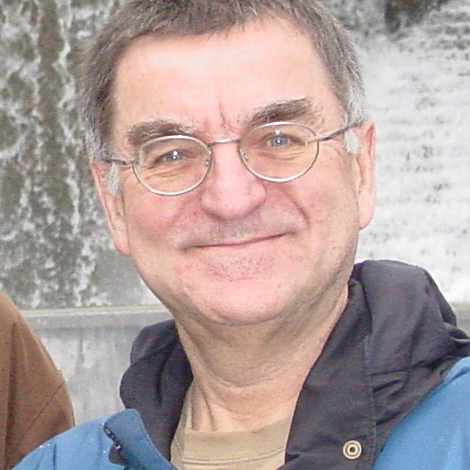It’s not often that Spark matches blow up Twitter, but a recent match between Soup Bee, a Winnipeg social enterprise that sells soups made with local ingredients by individuals facing barriers to employment, and Shel Zolkewich, a marketing specialist and food blogger, did just that.
Spark is CCEDNet’s pro bono matching service in Winnipeg, connecting community organizations to resources, ideas, and people who can help them.
Social media is currently a bit of a hot request at Spark, so when Kelly got in touch looking for help with Facebook we thought it was time to find a new volunteer/pro bono consultant. So I reached out to a group I’m in, asking for suggestions. When Shel asked for more information, I was beyond excited: I’d never met her, but I absolutely love the local food scene, and have been following her on Twitter for some time. I also knew that she was involved with the Manitoba Food Bloggers Facebook group, and couldn’t have been happier at the thought of bringing her together with Kelly.
Well, sure enough a mentoring match was made, and Shel had many great ideas for Soup Bee – including involving some local food bloggers by having a Soup Bee-hosted soup making competition.
At the end of February, eight people and their supporters gathered at Knox Community Kitchen (a group which has also received Spark help, for their lovely website), and competed for the bragging rights of being named the best soup maker. Based on the video taken at the event, it looks like everyone had a wonderful time.
 You can get in on some of the excitement and fun of the event by checking out #SouperBee on Twitter. As well, I’ve shared some participants’ blog posts below. Some of the contestants included recipes for their entries, and others have promised to share soon – yum!
You can get in on some of the excitement and fun of the event by checking out #SouperBee on Twitter. As well, I’ve shared some participants’ blog posts below. Some of the contestants included recipes for their entries, and others have promised to share soon – yum!
As you keep an eye out for more recipes to appear, you could also follow us on Facebook to watch for the launch of Spark’s new website, coming later this year. We’re excited about the chance to share even more about our matches and the great people doing amazing things in this fine city.
Thanks again to Shel, Kelly, and all the participants and sponsors of the event. Thanks also to Chef Ben Kramer for the photo: he was one of the lucky judges, and snapped it before declaring the winner.
- Chicken Corn Chowder – Lightened up by Getty Stewart – the First Place Winner!
- Chili-Lime Chicken Vegetable Soup by Donald McKenzie
- Soup Bee: Real food, real meals by Jordan Cieciwa
- PegCity Lovely chats about the event in her vlog, and she also promises to share her recipe for Jamaican Beef Soup in an upcoming blog post
- While this post isn’t about the SouperBee event, SouperBee organizer Shel Zolkewich has included Soup Bee’s Tomato Paprika Bacon Soup on her list of 100 Best Things to Eat in Manitoba
 Katie Schewe is a Recruitment Co-ordinator for Spark, where she works to connect Winnipeg’s vast and varied talents to support nonprofits in their work. Through her experience working in the financial service industry and communications, Katie brings a unique perspective to community collaboration and motivating volunteer engagement to support the work of local organizations. Katie is a graduate of Canadian Mennonite Bible College and the University of Winnipeg. She enjoys networking to inspire new connections, matches, and partnerships.
Katie Schewe is a Recruitment Co-ordinator for Spark, where she works to connect Winnipeg’s vast and varied talents to support nonprofits in their work. Through her experience working in the financial service industry and communications, Katie brings a unique perspective to community collaboration and motivating volunteer engagement to support the work of local organizations. Katie is a graduate of Canadian Mennonite Bible College and the University of Winnipeg. She enjoys networking to inspire new connections, matches, and partnerships.



 I’m really interested in the possibilities that arise from two realities:
I’m really interested in the possibilities that arise from two realities: One of the projects I work on involves a mapping exercise with highschool-aged youth. Groups of participants get a large piece of paper and markers and are asked to draw what a healthy community looks like to them. Over the years I have been struck by the number of students who illustrate the importance of having health care services located near the other places and services that members of their families, especially elders, need to access. For instance, they draw clusters of grocery stores, immigration services, and community health clinics.
One of the projects I work on involves a mapping exercise with highschool-aged youth. Groups of participants get a large piece of paper and markers and are asked to draw what a healthy community looks like to them. Over the years I have been struck by the number of students who illustrate the importance of having health care services located near the other places and services that members of their families, especially elders, need to access. For instance, they draw clusters of grocery stores, immigration services, and community health clinics. Adam Lynes-Ford is a father of two and an avid fisher and gardener. He served as National Director for the
Adam Lynes-Ford is a father of two and an avid fisher and gardener. He served as National Director for the  What are some key elements of “new economies”?
What are some key elements of “new economies”?
 Alexa Pitoulis is the Managing Director with OpenMedia. Alexa brings over 15 years experience building and leading teams and projects for government and community organizations. A self-proclaimed kale-powered supermom on two wheels, she is a creative strategist driven by her passion for building regenerative social and ecological systems. With an MBA in Sustainable Systems from
Alexa Pitoulis is the Managing Director with OpenMedia. Alexa brings over 15 years experience building and leading teams and projects for government and community organizations. A self-proclaimed kale-powered supermom on two wheels, she is a creative strategist driven by her passion for building regenerative social and ecological systems. With an MBA in Sustainable Systems from  What are some key elements of new economies?
What are some key elements of new economies?
 As Director, Sustainability Strategy with global carpet tile manufacturer,
As Director, Sustainability Strategy with global carpet tile manufacturer,  The UK government has announced a significant new investment that will give communities greater control over what happens locally.
The UK government has announced a significant new investment that will give communities greater control over what happens locally.  Quebec’s economic development landscape is evolving.
Quebec’s economic development landscape is evolving.  Le Journal de Montréal:
Le Journal de Montréal: 
 “We aren’t leveraging the social capital we have to really create change,” said David LePage,
“We aren’t leveraging the social capital we have to really create change,” said David LePage, 


 SEE Change Magazine
SEE Change Magazine
 As announced in the 2013
As announced in the 2013  The last year was also an occasion to participate in
The last year was also an occasion to participate in  Our participation in the
Our participation in the 
 Through a focus on women’s economic independence, Lis Suarez is working toward poverty reduction among both local and immigrant women in Canada. The
Through a focus on women’s economic independence, Lis Suarez is working toward poverty reduction among both local and immigrant women in Canada. The 
 access for both, including those that haven’t been able to participate in the past due to barriers. This is not a lowered role for men – it is a partnership. In patriarchal societies, men are the ones that need to be convinced that equal access is a positive thing. They are a vital part of inequality reductions.
access for both, including those that haven’t been able to participate in the past due to barriers. This is not a lowered role for men – it is a partnership. In patriarchal societies, men are the ones that need to be convinced that equal access is a positive thing. They are a vital part of inequality reductions.